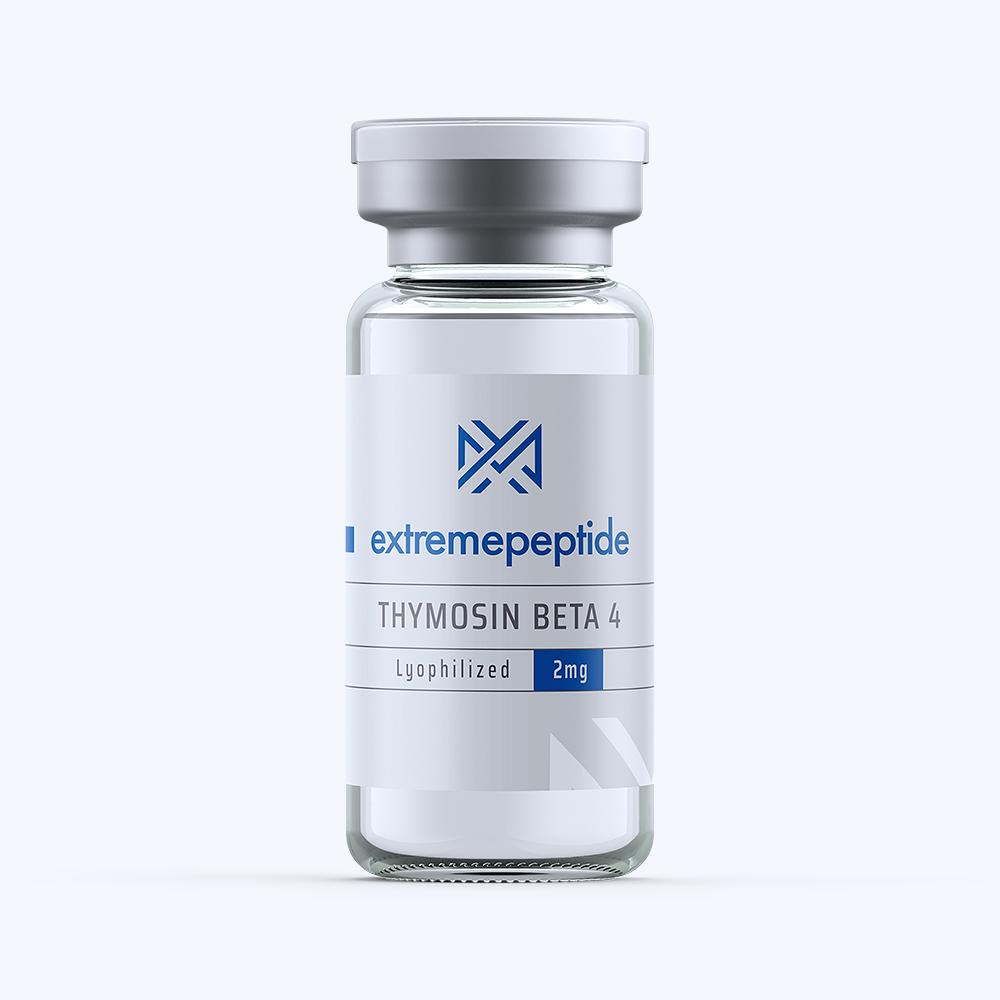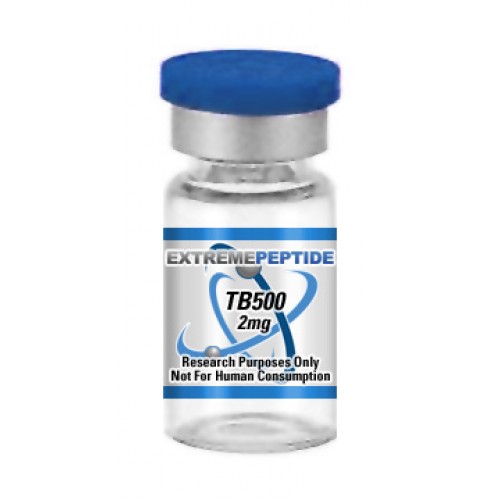The polypeptide Thymosin Beta 4 (TB500) is a peptide chain consisting of 43 amino acids that is currently being designated for scientific study based on animal test subjects. It has a molecular weight of 4963.4408. Its molecular structure is C12H35N56O78S. It is sometimes known as Tβ4.
How Thymosin Beta 4 (TB500) Operates
According to scientific study based on animal test subjects, Thymosin Beta 4 (TB500)’s primary function lay in its ability to bind to actin proteins. In essence, this process builds a sequestering molecule within eukaryotic cells that inhibits polymerization, otherwise known as the process of reacting monomer molecules in conjunction with a chemical reaction in order to create polymer chains.
This entire process is important because of what actin can do. Essentially, the globular protein plays a vital role in several key cellular processes found within an animal test subject, including:
- Cell motility
- Cell division
- Cytokinesis
- Vesicle movement
- Organelle movement
- Cell shape establishment and maintenance
- Muscle contraction
- Cell signaling
As Thymosin Beta 4 (TB500) interacts with actin, it manages to encourage cytoskeleton migration on a cellular level. It accomplishes this in two segments. Firstly, it is able to promote a boosted form of keratinocyte migration. What this means is, it acts to form an epidermal barrier against environmental damages including heat, water loss, ultraviolet radiation, and other foreign pathogens. Secondly, the peptide is able to promote an accelerated form of endothelial migration. What this means is, it provides aid in the formation and maintenance of blood vessels.
Because Thymosin Beta 4 (TB500) is able to elevate keratinocyte migration, it has been determined via scientific study of animal test subjects that the peptide possesses a high level of anti-inflammatory properties. Conversely, because Thymosin Beta 4 (TB500) has the ability to boost endothelial migration, the peptide promotes the formation and growth of blood vessels. It also has been shown to play a key role in the process of angiogenesis, which is the growth of new blood cells from earlier blood vessels in dermal tissues. These processes have led to the determination that Thymosin Beta 4 (TB500) can allow for cell migration to occur on a significantly more efficient basis.
Scientific study based on animal test subjects has also led to the deduction that Thymosin Beta 4 (TB500) possesses natural wound healing properties. This has been surmised in part because the peptide is present in wound fluid. Additionally, Thymosin Beta 4 (TB500)’s low molecular weight has been shown to allow the peptides to be able to travel through tissues over the course of long distances.
Thymosin Beta 4 (TB500) and Bodily Function

Because of Thymosin Beta 4 (TB500)’s relation with actin and its ability to ultimately promote an elevated sense of cellular migration, scientific study based on animal test subjects has determined that the presence of the peptide can be linked to elevating various bodily functions within the test subject.
One of the processes that Thymosin Beta 4 (TB500) has been liked to is one that is related to an accelerated sense of wound repair. Because the peptide has been shown to influence a boosted rate of anti-inflammatory action and has also been shown to contain natural wound healing factors, it has been determined that the peptide can allow for an animal test subject to experience a heightened level of recovery from wounds that would otherwise be slow to heal.
A second process involves an enhanced level of injury recovery. Because Thymosin Beta 4 (TB500) can promote an uptick in cellular generation rate, scientific study based on animal test subjects has determined that the peptide contains the ability to allow muscular and skeletal tissue to recovery from a host of injuries at a significantly higher rate.
Another boosted process is tied to an increase in muscular tissue. This elevated process is tied to the peptide’s ability to promote a more efficient means of cellular growth and transport via an improved cellular migration. Because of these processes, it has been thought that the peptide can enable a more efficient rate of muscular and skeletal tissue growth.
A fourth elevated process links the presence of Thymosin Beta 4 (TB500) with an enhanced rate of flexibility. Because the peptide promotes heightened levels of anti-inflammation, it has been determined that the peptide can allow for tissues to experience a wider range of stretching ability without experiencing damage or fatigue. Thus, this expanded range enables the animal test subject the capacity to take on a greater amount of physical stress an movement without any hyperextension.
